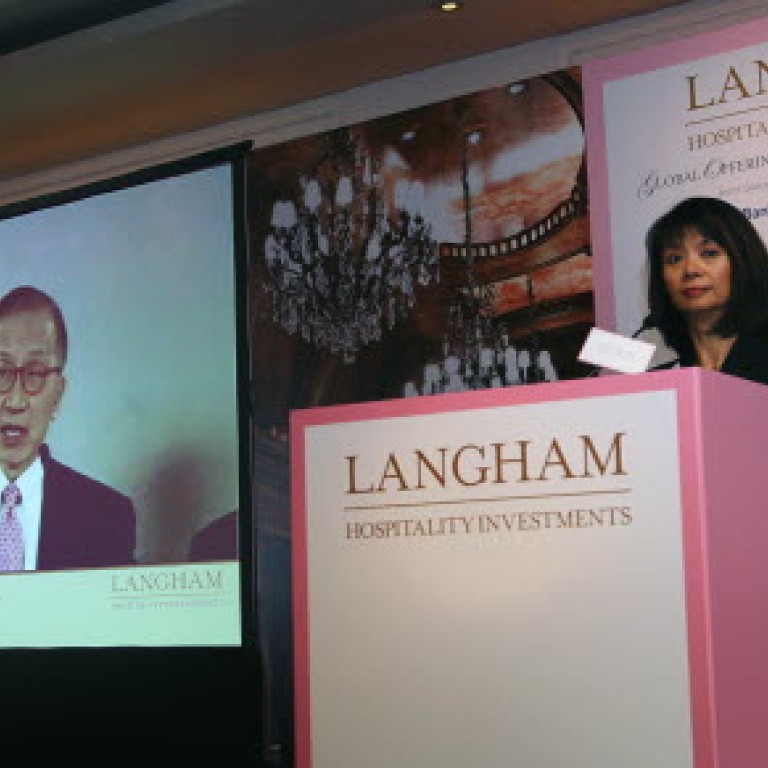
Reits not the only option for developers
Deloitte partner says business trusts have no gearing limit, are more flexible in terms of dividend payouts and are less complex to list
Mainland developers having difficulties obtaining finance are likely to consider business trusts as funding vehicles, accountancy firm Deloitte says.
"There is no gearing limit on a business trust. But a real estate investment trust (reit) has a gearing limit of not more than 45 per cent," Gary Fung, a partner at Deloitte, said.
"A business trust also has more flexibility with its distribution policy, while the dividend payout ratio of a reit has to be at least 90 per cent."
Langham Hospitality Investments, listed in May, was the first property-related listed business trust in Hong Kong.
In Hong Kong, capital gains and distributions from a business trust are not taxed, Fung said, adding that the listing process was less complicated.
"It is suitable for mainland developers who are able to generate stable income from offices and shopping malls," he said.
"Some of the mainland developers are planning to release business trusts. If market sentiment improves, there will be more developers launching business trusts."
Richard Ho, real estate managing partner at Deloitte, said: "The average debt-to-equity ratio for mainland developers was reported at 0.98 in 2012, double the norm of 0.5 … Smaller developers will become acquisition targets for their larger peers." In the first quarter, mainland developers were active in raising funds in the city's bond market.
"Some of our clients plan to sell bonds after their interim results are released," Ho said.
"The lending rate in Hong Kong is lower than that on the mainland. It is also not easy to get financing from banks on the mainland.
"We will see many Hong Kong-listed mainland developers financing in Hong Kong in the second half before the United States raises interest rates."
Borrowing from financial firms is one of the ways mainland developers raise funds. The loans have to be repaid in two or three years, Ho said.
"It will be the peak season for repayment this year and next year. Many developers will consider raising funds in Hong Kong and then repaying their debts on the mainland," he said.
Meanwhile, Ministry of Land and Resources figures show the supply of real estate sites reached 82,400 hectares in the first half. The supply of residential plots grew to 55,300 hectares, 36.9 per cent more than a year earlier and the highest level in five years.
Land prices in the major cities continue to rise. In the second quarter, the average land price of residential sites in 105 major cities was 4,799 yuan (HK$6,070) per square metre, 2.06 per cent higher than in the first quarter.
That represented an acceleration in price appreciation from the 1.8 per cent in the first quarter.

